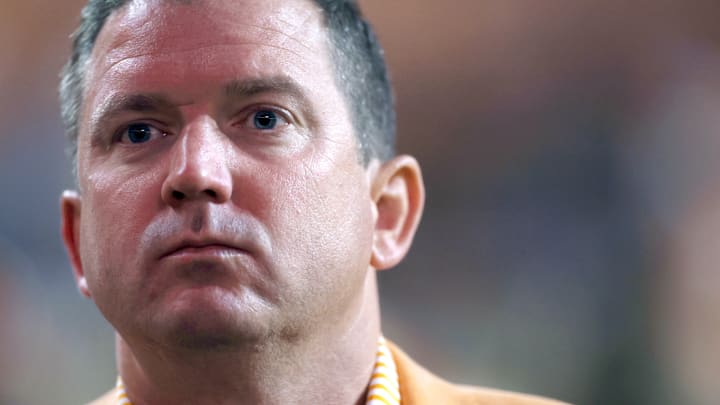SEC AD says the only way forward for college athletics is collective bargaining
If you're a fan of college athletics—especially here in the heart of Big Blue Nation—you’ve probably felt the ground shifting under your feet. And now, Tennessee athletic director Danny White just confirmed what many feared and others suspected:
“Collective bargaining... is the only solution.”

That’s not just a hot take. That’s a full-on detonation of the NCAA’s traditional model.
White, alongside University of Tennessee Chancellor Donde Plowman, is sounding the alarm as the House v. NCAA settlement barrels toward final approval. And if their words prove prophetic, college sports could be on the verge of becoming something unrecognizable.
Let’s break down what’s going on—and why it could matter as much to Kentucky basketball fans as the Final Four itself.
What is collective bargaining, anyway?
Think labor union.
Collective bargaining is when a group of workers—usually through a union—negotiate with their employer as a group. The goal? Better pay, better benefits, and better treatment.
Instead of every athlete trying to secure their own NIL deal or fight for medical care alone, they’d have unified representation. It’s how teachers, factory workers, and professional athletes hammer out contracts.
So what White is really saying is this:
Let’s make the NCAA the employer. Let’s make athletes employees. Let’s negotiate a binding contract for everyone.
That’s a seismic shift.
Why now? House v. NCAA and the $2.8 Billion ticking time bomb

The call for collective bargaining comes just as the NCAA prepares to settle three landmark lawsuits—House, Hubbard, and Carter v. NCAA—in a deal worth $2.8 billion over 10 years. That deal would compensate past athletes denied NIL revenue and let schools share up to 22% of their annual revenue—around $20-22 million per school—with current players.
That sounds like a win, right?
Well, not exactly.
Critics say the deal:
- Imposes a salary cap that could be illegal.
- Fails to protect women’s sports or non-revenue athletes.
- Limits fair-market NIL deals via a new regulatory clearinghouse.
- Reduces scholarship opportunities, replacing them with “roster limits.”
- Was negotiated without direct athlete input.
- Favors big schools.
Even if U.S. District Judge Claudia Wilken signs off—which appears likely—the lawsuits won’t stop. Lawyers are lining up for more already before it even becomes official. The Department of Justice is watching. And no one knows where the new rules will land.
White’s message is clear: This patchwork system is broken. Let’s build a new one.
But collective bargaining isn’t simple folks.
Turning college sports into a unionized labor force brings its own massive complications, including:
- Who’s in the union? Just football and basketball players? Or every athlete, from gymnastics to golf?
- Are athletes now employees? If so, what about their scholarships, taxes, and transfer freedom?
- Title IX nightmares. Equal pay under employment laws could spark lawsuits from every corner.
- School-by-school chaos. Will Kentucky negotiate a different deal than Florida or Alabama?
- Who represents the athletes? NIL collectives? New unions? The NCAA’s not exactly trusted here.
- And what happens if an athlete goes on strike before the NCAA Tournament?
The potential for chaos is real—but so is the potential for progress.
What it means for Kentucky and the SEC
Kentucky has always operated like a blue-blood NBA franchise in March and a southern football school in October. But with revenue-sharing, NIL regulations, and employment classifications in play, schools like UK may have to rethink everything about how they build rosters, fund Olympic sports even more, and even recruit.

Mark Pope’s Wildcats may benefit from a clearer, more structured compensation model—especially as ticket sales and TV money continue to grow. But it could also limit flexibility and bring unexpected legal challenges to Rupp Arena’s doorstep.
So what say you, BBN?
Do you want college sports to work like the pros?
Do you trust the NCAA, or anyone, to enforce a fair system for everyone?
Or is collective bargaining—the kind Danny White is calling for—the only real path forward?
We’re entering a new era of college athletics. The question is no longer if change is coming—but how much, and how fast.
And for once, Kentucky might not be able to dribble past the politics after all. Interesting times indeed.
